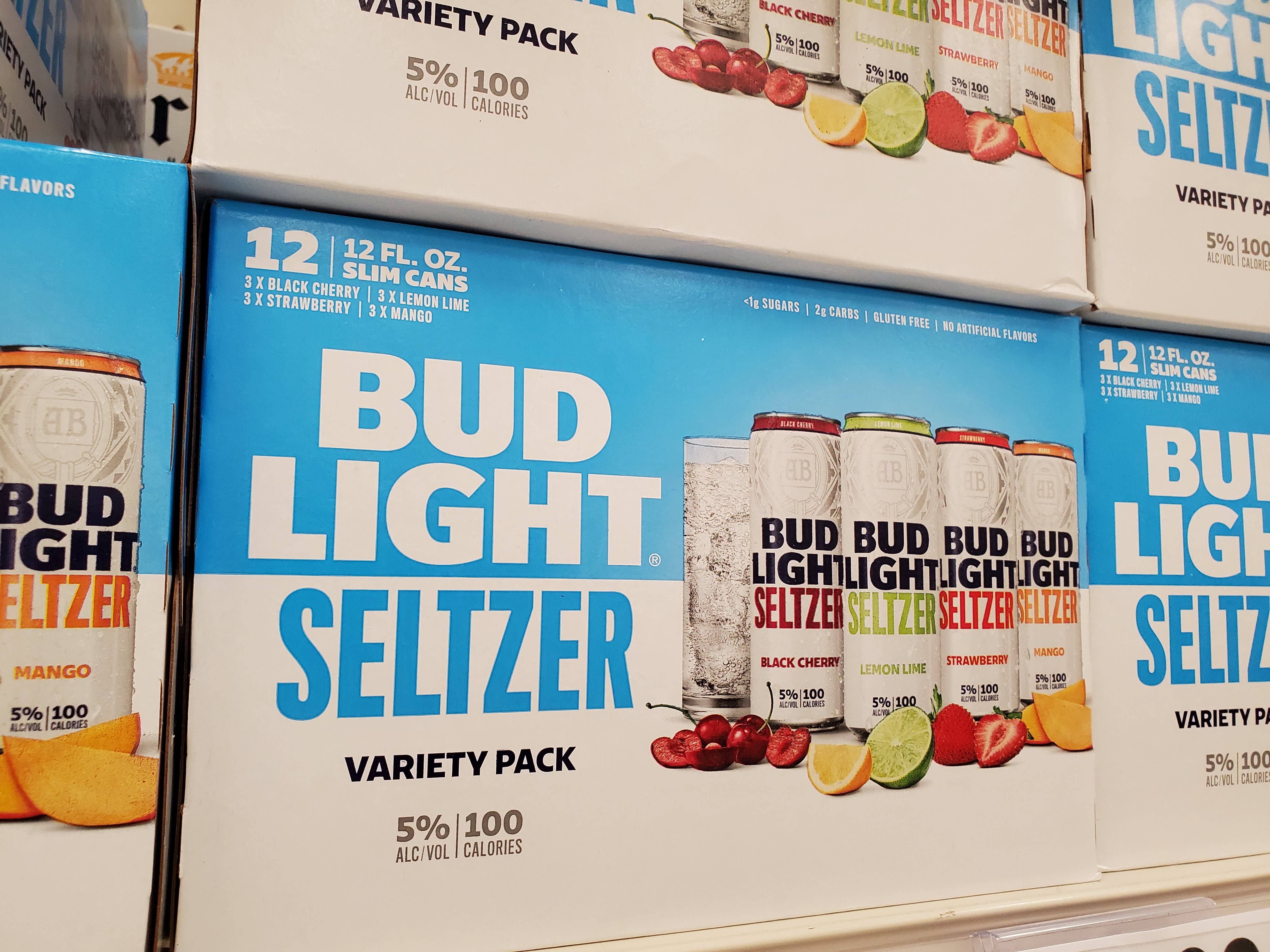Bud Light and Corona flex brand strength to stand out in a crowded hard seltzer aisle

Constellation Brands and Anheuser-Busch InBev are making life difficult for White Claw and Truly.
The newcomers to hard seltzer are using the heft of their legacy beer brands to edge out the category’s first movers.
Both brewers launched hard seltzers in early 2020, just in time for the at-home drinking boom caused by the pandemic. By splashing their seltzer cans with the familiar Corona and Bud Light names, Constellation and AB InBev are appealing to consumers who have an established relationship — or at least knowledge of — their products, building on years of marketing their beers.
Bud Light also has been constantly rotating its roster of flavors through seasonal variety packs, introducing more adventurous assortments than just lime, grapefruit and cherry. The company’s summer variety pack accounted for 3.5% of market share in the category alone, pushing the company to announce Tuesday that it will become a permanent staple.
Bud Light’s and Corona’s entry into hard seltzer follows years of declining beer consumption in the U.S. Last year, overall beer volume declined 2.8%, despite total alcohol consumption increasing by its highest rate in nearly two decades, according to industry tracker IWSR. Brewers have adapted to the shift in consumer preferences by moving into new categories and doubling down on beer segments that are actually seeing growth, like no-alcohol beer.
On the other hand, consumption of hard seltzer surged 130% in 2020, according to IWSR.
Hard seltzer drinkers tend to skew younger, overlapping with the same consumers who aren’t drinking beer. Mark Anthony Brands’ White Claw and Boston Beer‘s Truly held nearly three-quarters of the U.S. market share for hard seltzer last year, according to Euromonitor International data. But both brands have seen share declines as new competitors launch.
In 2019, White Claw held 56.5% of the market, but its share shrank to 49.5% the next year. Truly’s market share has been falling since 2018, when the brand accounted for nearly a third of hard seltzer sales. On July 23, Boston Beer’s stock lost more than a quarter of its value after the company blamed softer-than-expected demand for Truly for its disappointing earnings and revenue and cut its full-year forecast.
“Now, there’s 220 brands and 1,000 SKUs according to IRI in the category right now,” CEO Dave Burwick said on Boston Beer’s earnings call. “That’s about 50% larger than last year. And we’re seeing our retail customers are still trying to support all of them.”
Not all beer brands have been successful with hard seltzer. Molson Coors Beverages has opted to discontinue its Coors Light Hard Seltzer in the U.S. in favor of focusing on Vizzy and Topo Chico Hard Seltzer, which have seen more robust sales growth.
For Bud Light, however, the strategy is working. In the last four weeks, Bud Light Seltzer has accounted for a 10th of hard seltzer sales in the U.S.
“As we sit here in year two, I’m more bullish than ever on the seltzer category and Bud Light’s position in it,” said Andy Goeler, Bud Light’s vice president of marketing.
Goeler said Bud Light Seltzer is introducing new consumers to the category, as well as taking market share from competitors. And as consumers return to bars and restaurants, Bud Light has rolled out a draft version of its black cherry seltzer in a handful of states, with plans to take it nationwide.
Parent company AB InBev has set a goal for its entire seltzer portfolio, which includes its brand Bon & Viv, to outpace the overall seltzer segment’s growth by two times this year. It’s currently on track to surpass that goal.
Likewise, Constellation is doubling down on hard seltzer. The company is projecting that the hard seltzer category will grow 30% to 50% this year. CEO Bill Newlands said on the company’s earnings call in late July that it plans to double its seltzer capabilities during the fiscal year, with the long-term goal of becoming a top-three player.
“Ultimately, we believe the hard seltzer category will be dominated by a few large brands in the long run, similar to the light beer category, and we are positioning Corona Hard Seltzer to be one of those brands,” Newlands told analysts.




